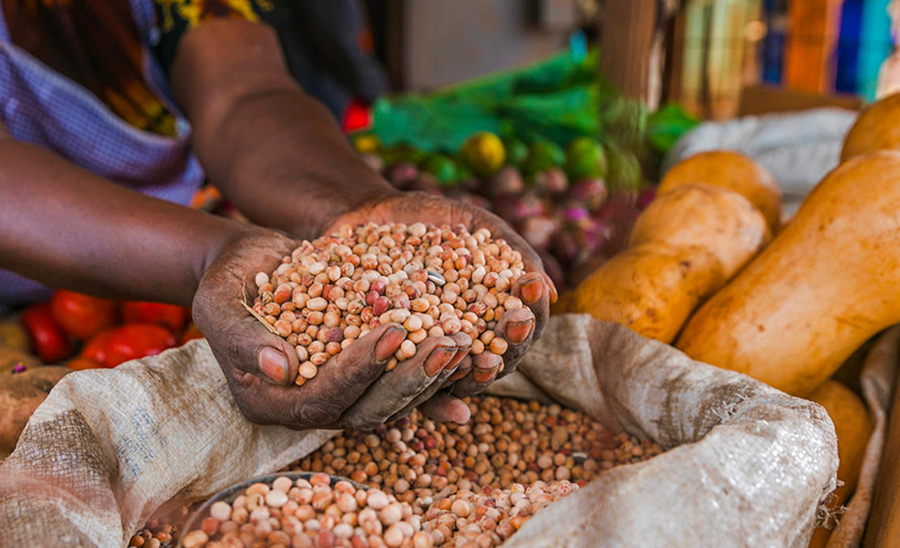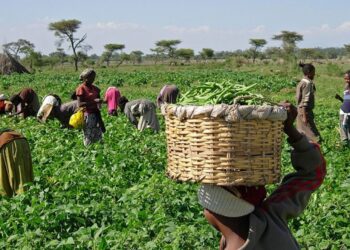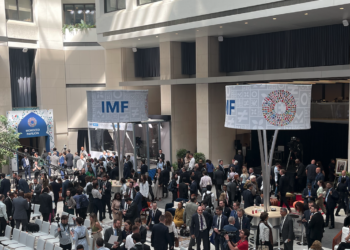It will be impossible for Nigeria to achieve food security or GDP growth when more than 74% of her small-scale farmers are financially excluded. This was disclosed by the Co-founder and Managing Partner of Sahel Consulting, Ndidi Okonkwo Nwuneli, who was a guest on this week’s Nairametrics Tweetchat which took place yesterday.
According to her, financial inclusion is the x-factor needed to transition Nigerian farmers from subsistence to a growth phase. This will be actualized by providing farmers with funding so they can invest in the needed technology that will expand operations and enable them compete with agro-entrepreneurs across the world. Ultimately, food security would also be realised.
(READ MORE: Food crisis imminent as lockdown continues to restrict cargo movement – Kobo360)
Nwuneli observed that agricultural financing is a prerequisite for attaining food security. However, this cannot be adequately met until farmers are taken seriously. She added that a national survey showed that more about 74% of Nigeria’s smallholder farmers are financially excluded.
“According to a report by the @worldbankdata, there is a strong correlation between financial inclusion and GDP growth. Improving access to finance for smallholder farmers will improve their output, the availability and affordability of food, and in turn the GDP of our economy”
There is an unmet need among smallholder farmers for agricultural financing. A national survey and segmentation of smallholders’ household report in 2017 showed that there are over 10 million smallholder farmers, of which 74% of them are financially excluded.
— Ndidi Okonkwo Nwuneli (@ndidiNwuneli) April 16, 2020
She then went ahead to warn about the repercussions of the closure of regional and national borders, and restricted trading.
“Our regional and national borders are closed, and trading is being restricted. These realities, if pro-longed and not urgently addressed, will lead to short term consequences of food shortages, price hikes, and medium to long term consequences of under-nutrition, mass starvation.”
Our regional and national borders are closed, and trading is being restricted. These realities, if pro-longed and not urgently addressed, will lead to short term consequences of food shortages, price hikes, and medium to long term consequences of under-nutrition, mass starvation
— Ndidi Okonkwo Nwuneli (@ndidiNwuneli) April 16, 2020
(READ MORE: 7 million Nigerians, 13 states to experience food shortage- FAO)
Nwuneli, who is also co-founder of AACE Foods, an indigenous agro-processing company and social enterprise, reiterated that farmers have to get to a point where they can receive payments and other funding through secured electronic means, which would translate to an improved financial sector in the long term.

What you should know: The Nairametrics Tweetchat is a weekly chat with prominent personalities in the different areas of the financial industry. It is aimed at providing insights on the Nigerian economy and how trending events affect the naira.














.gif)






